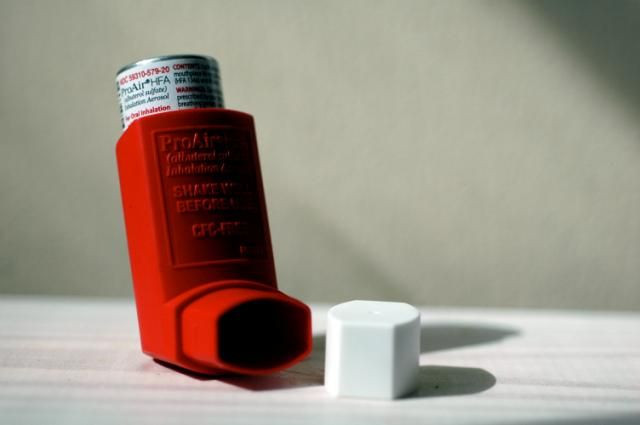Childhood Asthma May Be 'Unrecognized Risk Factor' For Shingles Later On In Life

Two common childhood ailments may team up to make life a bit more excruciating in later years, a new study published Monday in the Journal of Allergy and Clinical Immunology suggests.
The researchers, hailing primarily from the Mayo Clinic, found that adults who came down with the viral disease shingles (herpes zoster) were more likely to report a history of asthma compared to those in a control group. Extrapolating from that, they further concluded adults with a history of asthma were 70 percent more likely to develop shingles than those without. The study, though far from definitive, may shine further light on why only a certain subset of individuals susceptible to the illness go on to develop it.
“Asthma represents one of the five most burdensome chronic diseases in the U.S., affecting up to 17 percent of the population,” study author Dr. Young Juhn told the Mayo Clinic News Network. “The effect of asthma on the risk of infection or immune dysfunction might very well go beyond the airways.” Dr. Juhn is a general academic pediatrician and asthma epidemiologist at the Mayo Clinic Children’s Research Center located in Rochester, Minnesota.
The Return Of The Germ
Shingles is caused by the same pathogen responsible for chickenpox, varicella zoster virus (VSV), though solely in people who have already lived through a chickenpox infection. For only broadly understood reasons, such as a weakened immune system, the previously dormant VSV reemerges in about one-third of these individuals and infects their nerve cells, often bringing on pain, fever, and a distinctive rash limited to one side of the body that lasts for weeks. In some cases, the nerve damage caused by shingles persists long after the infection is gone, creating a painful condition known as postherpetic neuralgia (PHN) that can endure for months, years, or even a lifetime.
Despite the occasional rumormongering from the anti-vaccination crowd, there doesn’t appear to be a connection between chickenpox vaccination and the apparent rise in shingles cases, with the rise having occurred long before the vaccine became mandatory for children stateside in 1996. Immunity from the vaccine can wear off, though, and there is a small risk of developing shingles even if vaccinated. It’s believed nearly all adults carry VSV in their system.
For this current study, the researchers delved into the medical histories of 371 shingles-positive residents aged 50 or older from Olmsted County, MN, and compared them to a control group of 742 people matched in terms of birthdate and sex. The average age of the participants was 67, and 66 percent were women. Twenty-three percent of the shingles group (81 people) had a history of asthma compared with 15 percent of the control subjects (114). A similar association was found with eczema, as 12 percent of the latter group had it compared to 8 percent of controls. Both eczema and asthma are known to be tied to a dysfunctioning immune system.
To better bolster their findings, the researchers have previously found the same connection between asthma and shingles risk in a similar study of Olmsted County, MN children. Both studies only signal an association between the two conditions, though, so a concrete explanation behind the link is still wanting. The researchers theorize these autoimmmune ailments may slightly sap the strength of our adaptive immune system, which is responsible for maintaining protection against already defeated diseases like measles and, of course, chickenpox.
If nothing else, the findings may highlight the need for more extensive promotion of the shingles vaccine, which moderately protects against both the disease and the risk of developing more serious complications like PHN for those who still come down with it.
“Asthma might be an unrecognized significant risk factor for [shingles] in adults,” concluded the authors. “Consideration for immunizing adults with asthma ages 50 years or older as a target group should be given.”
Source: Kwon H, Bang D, Kim E, et al. Asthma as a risk factor for zoster in adults: A population-based case-control study. Journal of Allergy and Clinical Immunology. 2015.
Published by Medicaldaily.com



























